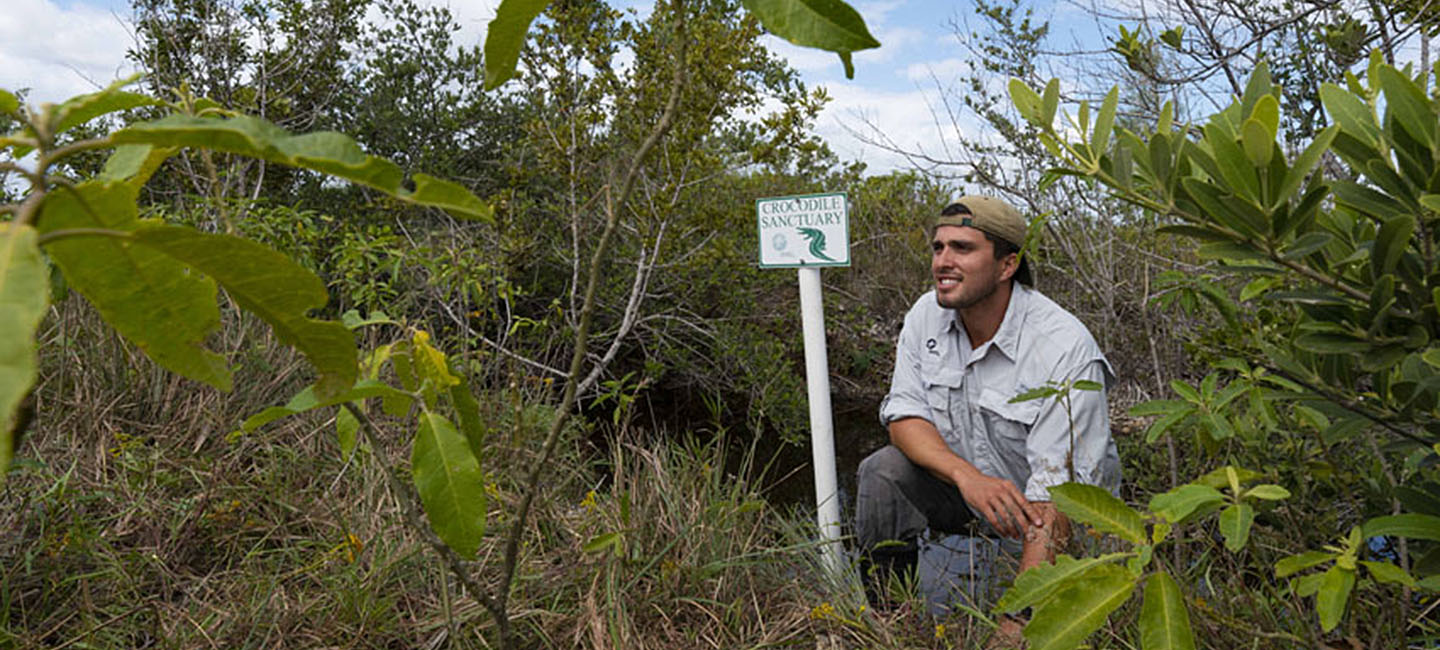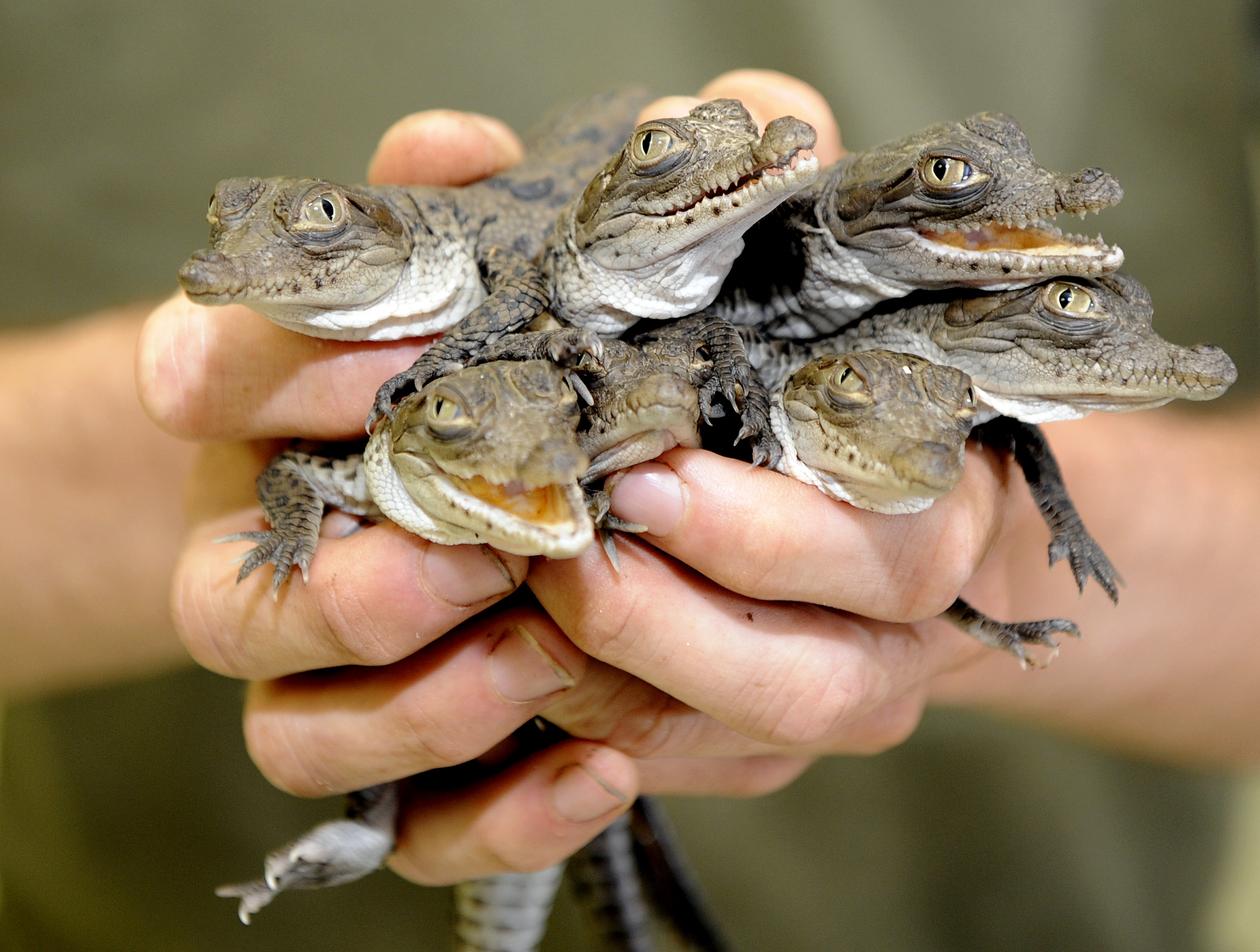
At 5 years old, Mike Lloret was already handling 15-foot pythons and small alligators. At school, he was called out of class to catch wild iguanas or a random peacock that wandered into the hallways. And by the time he was 9, Lloret had already bred his first turtle.
“I've always been fascinated by wildlife, especially reptiles,” the Florida Power & Light Company biologist and crocodile specialist said. “I was the little kid putting lizards on my ears and climbing up trees to catch iguanas.”
His grandfather, a Cuban immigrant who owned a gas station in Miami, spent his days in retirement embracing Lloret’s enthusiasm for wildlife, a fascination they both shared.
.png)
On weekends, they explored canals to catch exotic fish and study them in his grandfather’s shed. Without the help of Google or the internet back in those days, the pair resorted to photographing the animals they caught and visiting pet stores or libraries to learn more about them. They did the same with birds and reptiles.
“My relationship with him really allowed me to keep my passion going at a young age and that has been my obsession ever since,” said Lloret, now 31.
After earning a biology degree from the University of Miami in 2013, Lloret’s passion for animals and the environment led him to FPL’s Turkey Point Nuclear Power Plant in Homestead.
He is responsible for and monitors wildlife in the plant’s 11,000 acres of land and 168-linear-mile cooling canal system, which is designed to remove the heat that is produced by the plant’s generation of power. The ecosystem is also home to more than 60 known species of birds and animals including indigo snakes and roseate spoonbills.
In 1979, most of the site was designated critical habitat for the American crocodile, protecting them from humans and predators alike. The plant’s cooling canal system is an ideal habitat for them because it provides elevated and maintained berms protecting nests from flooding.
With the help of biologists and wildlife experts like Lloret, over the years the nuclear power plant has played a large role in pulling back the American crocodile from its endangered species status. South Florida is the only place in the United States where they are found, and Turkey Point is one of three primary nesting habitats in the nation.
What distinguishes FPL’s program is that the company actively creates and maintains habitats for the reptile to utilize. Biologists help clear nesting sites of overgrown vegetation and create ponds that collect rainwater and act as fresher water nurseries for the hatchling crocodiles, which are born without salt glands. Meanwhile, Turkey Point's Environmental Scientists perform regular water sampling where they collect tremendous amounts of water quality data throughout the year to help monitor the conditions within the cooling canals. This allows mothers to nest and hatchlings to grow in a controlled, safe environment.
“We try to create the best habitat we can so that they’re happy and produce a bunch of offspring,” Lloret, who has a strong background in habitat creation, said.
Once hatched, mother crocodiles carry their offspring from the nest to nearby ponds. At night, when headlamps help spot the crocs’ red glowing eyes, Lloret and his team search for hatchlings to bring back to the lab for observation. This includes collecting biometric measurements such as length, weight, tail girth, as well as determining the sex of the crocodiles, inserting a PIT tag and clipping a unique pattern in their tails before returning them to the wild. This kicks off a lifetime of monitoring.
The goal is to re-capture the same crocodiles as they grow in order to analyze the population’s progress throughout the years. Over time, biologists can analyze the data and look for trends that may help predict overall population size, growth and survival rates. They can also predict where crocodiles will gather and nest, which helps decide where biologists should maintain or create new habitats along the cooling canal system.
Since the program began, FPL biologists have tagged more than 9,282 hatchlings at Turkey Point. In 2021, they set a record with the most hatchlings (565) in a nesting season. In 2022, they set another record with 33 nests.
“It’s amazing to see crocodiles thriving in waters used in the process to create clean, emissions-free nuclear power,” said Kate MacGregor, vice president of environmental services for NextEra Energy, FPL’s parent company. “This milestone is a testament to our environmental stewardship. The tireless work put forth by this team has resulted in a significant increase in the once-endangered American crocodile population.”
The program’s achievements have attracted the attention of many, including national media outlets and Mutual of Omaha’s Wild Kingdom, a popular nature television show. Its new series “Protecting the Wild” showcases conservation success stories while inspiring the next generation of conservationists.
“I grew up watching the show,” Lloret said. “So did my grandfather and my father. It’s amazing to be a part of it and partner with other like-minded people that are just as passionate about conservation.”
However, this is not the first time the show has been interested in Turkey Point. In 1992, producers visited the plant to film a special on the crocodile program.
“When they visited back then, we were so proud to announce the most hatchlings in the program’s history totaling 107,” MacGregor said. “Thirty years later, we now have more than 500 hatchlings coming from these canals.”
MacGregor and Lloret both joined show host and conservationist Peter Gros to walk him through the site’s nesting sites and the program’s efforts.
"It’s amazing to be able to tell our story on a national platform,” Lloret said. “This is an inside look into FPL’s commitment to crocodiles, and it’s only going to get better with time.”
Watch them as they tour Turkey Point Jan. 20 on RFD-TV or stream anytime on WildKingdom.com.

